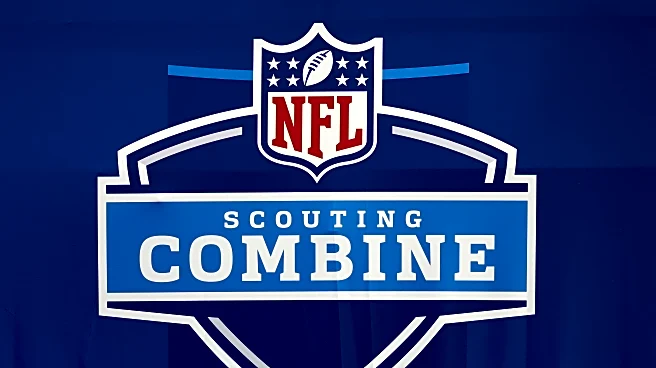What's Happening?
Sydney Sweeney, an actress known for her roles in popular television series, has addressed the controversy surrounding her American Eagle jeans advertisement. The ad, which aired in August 2025, sparked
significant backlash due to perceived implications of promoting eugenics. In a recent video interview with GQ, Sweeney discussed the public reaction and the involvement of President Trump, who had previously commented on the ad. Despite the controversy, Sweeney did not issue an apology, instead expressing her love for jeans and downplaying the situation. Her comments have reignited discussions, with some critics accusing her of being dismissive and privileged.
Why It's Important?
The controversy surrounding Sydney Sweeney's ad highlights ongoing societal tensions regarding race and representation in media. The ad's backlash underscores the sensitivity of advertising content and the potential for public figures to influence societal discourse. Sweeney's response, or lack thereof, has drawn mixed reactions, reflecting broader debates about accountability and privilege in the entertainment industry. This incident also illustrates the power of social media in amplifying public opinion and shaping narratives around celebrity actions. The involvement of President Trump further politicizes the issue, potentially impacting public perception and discourse.
What's Next?
As the controversy continues to unfold, it remains to be seen how Sydney Sweeney and American Eagle will navigate the public's response. The situation may prompt further discussions within the advertising industry about the importance of cultural sensitivity and the potential repercussions of controversial content. Additionally, public figures and brands may become more cautious in their messaging to avoid similar backlash. The ongoing dialogue may also influence how celebrities engage with social issues and respond to public criticism in the future.
Beyond the Headlines
This controversy raises questions about the ethical responsibilities of celebrities and brands in shaping public discourse. It highlights the potential for advertising to inadvertently perpetuate harmful stereotypes or ideologies. The incident also reflects broader cultural dynamics, including the role of privilege and the expectations placed on public figures to address societal issues. As discussions continue, there may be a push for more inclusive and thoughtful representation in media and advertising.










